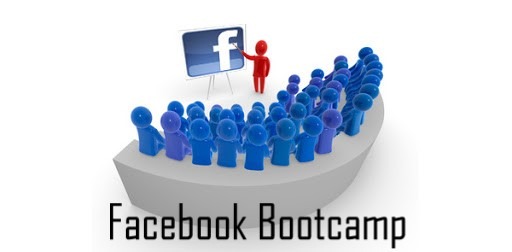Bootcamp is a 6 week (usually) engineering onboarding program with a new class starting every other week. Each Bootcamp is sent a welcome letter and assigned a Bootcamp mentor who helps them fulfill the expectations for a Bootcamper. In this post, I will be sharing some of the Bootcamp procedural training, processes, and the benefits of passing through Facebook Bootcamp.

lets quickly delve into the training system of Facebook Bootcamping.
Training
- Exposed to the breadth of the codebase
- Exposed to core tools of engineering
- Indoctrinated culturally
Evaluation through real work done during Bootcamp
- Vetted for success at Facebook
- Discovered developmental areas for success
- Remember – you are at Facebook because we believe you will be successful here
Placement (when applicable)
- Best fit for org priorities
- Passion fit
- Strength fit
- Friendships with fellow boot campers and engineers encountered through Bootcamp tasks
In addition to onboarding new engineers, Bootcamp provides training to seasoned engineers in technical leadership and management via the Bootcamp mentor role. Additionally, Bootcamp provides valuable data and process insights into recruiting. Learn more about the benefits of the Bootcamp program.
The Benefit of Facebook BootCamp: Why BootCamoing?
- Firstly, Bootcamp sets the tone for a successful career at Facebook. When engineers open their laptops the first time they should have a welcome email from the Bootcamp manager or their Bootcamp mentor and a bunch of work assigned to them to get started on.
- Bootcamp is different for every new engineer. Each individual is coming from a different background and likely has different interests. Once we get past a basic bar of ability to do the job, we work with the engineers to make sure we’re providing them with the help that will lead to long term success here.
- Also, Bootcamp can help everyone. From the most senior director or VP to the newest college grad, incoming engineers often express concerns that Bootcamp isn’t right for them. Through talking with people immediately following Bootcamp and also at 3 and 6-month intervals we can say quite confidently that it really does help everyone. The entire engineering organization all the way up to Zuck believes this.
- Bootcamp is not meant to make people comfortable. We should be pushing people beyond their limits and encouraging them to explore technologies outside their area of expertise.
- Also, If someone is an expert at machine learning, then we shouldn’t make that part of Bootcamp since we already believe they are experts at it; instead, we should invite them to explore technologies that surround their expertise at Facebook.
- People building front end software need to understand the stack upon which their software runs. People writing back end software need to understand the clients they will be supporting.
- Learning the core codebase is important for building good software, no matter where in the stack someone ends up working, and it also improves empathy for other engineers.
- Lastly, Bootcamp mentors get valuable returns for their time. The engineers get hands-on technical leadership and management experience in a controlled environment.
Social Media: Facebook, Twitter, Wikipedia, LinkedIn, Pinterest